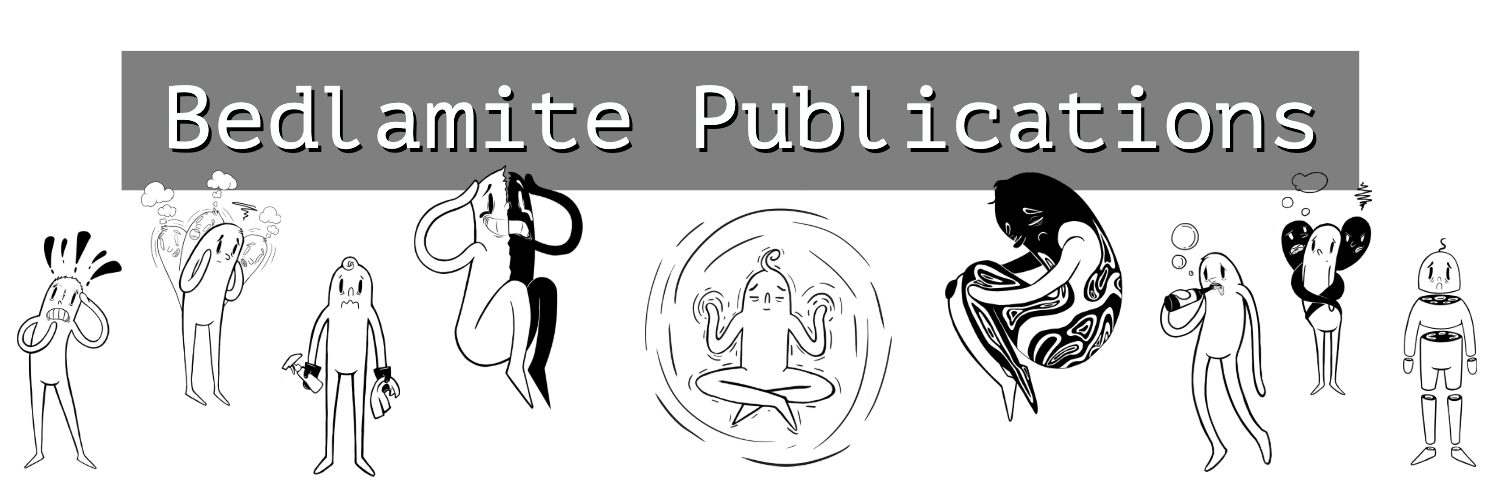Borderline personality disorder (BPD) is a mental health condition characterized by an individual’s thoughts and feelings towards themselves and other. Oftentimes, symptoms of BPD result in conflicts and some may find it difficult in saying no to someone with borderline personality disorder.
If someone you love struggles with BPD and you’re currently trying to help them, standing your ground is essential. Throughout this article, we’re going to discuss BPD, how it affects those struggling, and what you can do to help a loved on. At the end, we invite you to ask further questions.
What is Borderline Personality Disorder?
Borderline personality disorder (BPD) is a mood disorder that often causes the following: ¹
- Behavior complications
- Mood swings
- Problems with self-image
Due to its nature, BPD will make a person impulsive and create difficulties within a relationship. Furthermore, those with BPD may also experience other mental complications, such as episodes of anger, anxiety, and depression.
People with BPD tend to have extreme perspectives of themselves and others. Their opinions are constantly changing as their emotions are always shifting from one intensity to another. This can lead to the following symptoms:
- Abandonment issues (real and imagined)
- Feelings of emptiness
- Impulsive actions and dangerous behaviors (i.e. unsafe sex, substance abuse, etc.)
- Misrepresented view of self and others
- Patterns of severe and unstable relationships (with family, friends, and other loved ones)
- Self-harm and suicidal thoughts/behaviors
- Sense of dissociation (feeling cut off from oneself or others)
- Severe mood swings of intense emotion
- Trust issues that can result in irrational fears
While not everyone with BPD will experience every one of these symptoms, those that they do experience tend to be very intense.
What Causes BPD?
Currently, there is no clear way to indicate what causes borderline personality disorder. However, researchers agree the following play a major role:
- Brain Function – Studies have found that people with BPD tend to have structural and functional differences in the brain. Especially in areas that are responsible for controlling impulses and emotions. ²
- Environmental – Many with BPD report previous experiences of a traumatic life event, including childhood abuse, abandonment, or adversity as well as unstable relationships and aggressive conflicts. ³
- Genetics – Those with close relatives (i.e. sibling, parent, etc.) who struggle with BPD are at a much higher risk of developing it themselves. ⁴
How Does BPD Effect Relationships?
Due to the nature of BPD symptoms, those in a relationship with someone with BPD are likely to experience a lot of dysfunction. While everyone’s relationship is different, some may find themselves in the following predicaments: ⁵
- Having a partner with severe abandonment issues. So much so that the BPD partner obsessively does everything in their power to ensure their significant other is satisfied with the relationship.
- When a BPD partner experiences a sudden and intense shift in emotions, they may become extremely angry and hostile towards their significant other. Furthermore, they may try to detach entirely.
- Since people with BPD tend to be more impulsive, they may do something that their partner isn’t comfortable with which can result in conflict.
- Feeling as though they want to go about ending a friendship with a borderline personality even though they don’t necessarily dislike the person.
Still, this isn’t to say that those with BPD cannot be satisfying partners. In fact, some will find that their BPD partner to be extremely caring, compassionate, and devoted to the relationship.
If you are in a BPD relationship with another BPD, there are some obstacles you may need to work around that aren’t directly identified below.

Saying No to Someone with Borderline Personality Disorder
People with BPD tend to experience very extreme emotions when it comes to their relationships with other. With that, it can be difficult for the person without BPD to say “no.”
Of course, we all come across instances where we have to say “no.” But the intensity of emotions from a BPD partner may make us want to avoid confrontation at all costs. If so, we end up in a cycle of feeling as though our word doesn’t have any authority through communication.
While it’s essential we do say “no” when we mean it, it’s just as important to understand and work with the sensitivity of our BPD partner. There is no average length of BPD relationship or a BPD friendship cycle – longevity ultimately comes down to both parties willingness to participate. Here are five different ways that will help you get through what you’re trying to say:
1.) Listen to What They Have to Say
Someone with BPD knows when you’re not listening to them. Their symptoms cause them to be extremely perceptive and oftentimes are able to read how your feeling simply from facial expression. While this may come across as confrontational, you shouldn’t view it through such a light.
Rather, you should genuinely attempt to listen to whatever it is they have to say because, more often than not, they weren’t listen to as a child. You don’t always need to know how to respond, you just have to try and see things through their perspective.
Naturally, this can be difficult as you’ve never experienced BPD yourself. For this reason, it’s highly recommended you do some research on BPD, the abandonment issues they face, and how to better help with their symptoms.
2.) Confirm Their Emotions, Not Conduct
When it comes to saying no to someone with BPD, there’s the challenge of emotional sensitivity. ⁶ As we’ve discussed, those with BPD often experience intense mood swings that are followed with behavioral complications. While their feelings may be validated, their conduct may be rejected.
For example, your BPD partner may feel as though you’re going to leave them due a lack of emotions on your end. These feelings are validated. However, if your BPD partner acts on these feelings by participating in unsafe sex with another, then their behavior becomes invalid.
While that’s an extreme example, it gives you a perspective on how a person with BPD conducts their life. In order to grow closer to someone with BPD, you’ll want to try and understand their emotions. By doing so, it shows that you are making the effort to see things from their perspective.
Therefore, if your BPD partner behaves in a manner you don’t agree with (or that’s socially inappropriate), you’ll have a better chance at getting through to them. Simply because they trust you have a comprehension of how they’re feeling.
3.) Try to See Things Through Their Perspective
While this isn’t always true, a large number of people struggling with BPD are survivors of trauma. Most often, people with BPD have experienced childhood trauma that they haven’t been able to let go of. In turn, when you’re addressing someone with this condition, it’s likely you’re also addressing that trauma.
With that in mind, there’s no denying it’s difficult to say “no” to a child. However, many parents still manage.
Saying “no” to someone with BPD is a bit more complicated though. First, it’s important for you to get down to their level and understand the childhood trauma that’s causing conflict. Secondly, once you do have a better comprehension, you must act upon as an adult dealing with an adult.
Instead of arguing over the “content” of their argument, it may be better to address aspects of their trauma that have gone unmet. Of course, the only way to know these aspects is by getting to know your BPD partner and the trauma they have been through.
4.) Set Boundaries Where Necessary
Even though you need to get down on their level to understand things, you don’t have to bear all the responsibilities of the relationship. While we are often dealing with childhood trauma, this doesn’t mean your BPD partner can breeze by adulthood necessities.
For this reason, it’s incredibly important that you set boundaries in your relationship. For example, you may find that you only have so much empathy offer and that your BPD partner often seeks out more. It’s key that they understand your limits and how much you’re able to handle.
Naturally, you probably won’t be able to set boundaries in the moment of an emotional episode. However, you can do so in moments before your BPD partner is triggered. A good way to identify these boundaries is by saying something along the lines of, “I understand you feel [this way] and I will do [what I can to help], but I cannot condone [this behavior].”
You don’t necessarily want to go about ignoring someone with borderline personality disorder. This could lead to more fears of abandonment within your BPD partner. Rather, you want to talk with them one-on-one so they understand your limitations. Furthermore, you’ll want
5.) Keep Yourself in Mind
While you may be in a relationship with someone with BPD, you are not their saving grace. You have your own needs and difficulties as well as they do. Therefore, there needs to be an effort on both ends in order to ensure a healthy relationship.
Even though you can’t get rid of your partner’s past traumas, you do have the ability to be compassionate and grow with them. Furthermore, you can be their number one advocate for treatment.
There are a lot of difficulties in saying no to someone with BPD. However, if you can look past these difficulties and develop a strategy, we guarantee you’ll be able to say it as you would to any other person.

Final Word
Whether it’s a significant other, friendship, or family, loving someone with BPD can be difficult. There are plenty of challenges you don’t find in a normal relationship and this often requires research on your end. However, we guarantee there are ways to develop and maintain a healthy relationship with someone struggling with BPD.
Furthermore, even though it may seem impossible at times, there are ways you can say “no.” Disagreement may be the last thing someone with BPD wants to hear, but you’re necessities are just as valid as there’s. Therefore, putting your foot down is a requirement for any healthy relationship.
While out step-by-step guide has given some insight, you’ll also want to speak to your BPD partner’s psychiatrist or psychologist on the matter. BPD affects everyone differently and chances are your partner has struggles that aren’t directly identified in this article.
Your Questions
Still have questions about saying no to someone with borderline personality disorder?
We invite you to ask them in the comments section below. If you have any further knowledge to share – whether personal or professional – we’d also love to hear from you.
Reference Sources
¹ National Institute of Mental Health (NIMH): Borderline Personality Disorder
² Brain structure & function: Brain structure and function in borderline personality disorder
³ The Psychiatric clinics of North America: Trauma and the development of borderline personality disorder
⁴ Journal of Psychiatry & Neuroscience: Neuroimaging and genetics of borderline personality disorder
⁵ Journal of Personality Disorders: Attachment, borderline personality, and romantic relationship dysfunction
⁶ HHS Public Access: Components of Emotion Dysregulation in Borderline Personality Disorder

